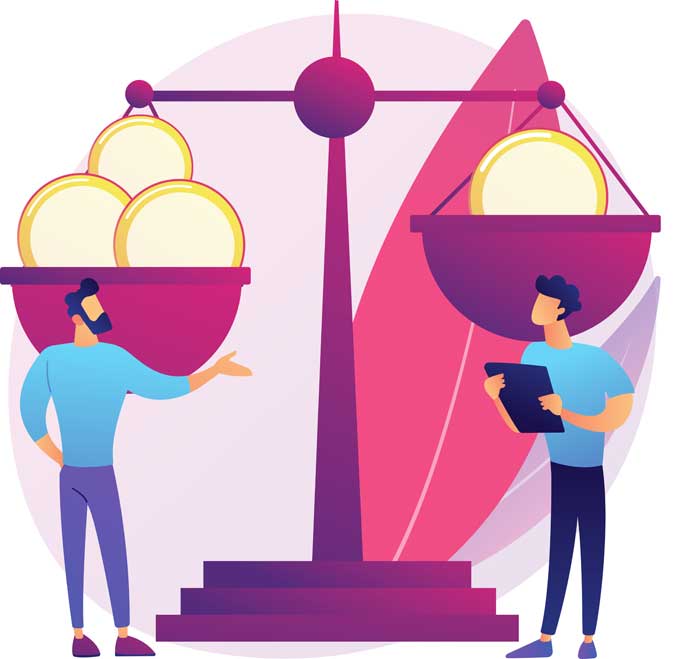
The View From Taft
By Benito L. Teehankee

Last year, the Economic Policy Institute reported that the ratio of CEO to average employee pay in the top US companies increased from a low 31 to one in 1978, 61 to one in 1989, 118 to one in 1995, to a whopping 320 to one in 2019. My mind reels at such inequality, but there’s more.
The New York Times reported recently that despite the terrible impacts of the pandemic on corporate bottom lines and jobs, the CEOs of some of the hardest hit companies were “showered in riches.” Hilton laid off almost a quarter of its staff because of pandemic-related losses of $720 million, but CEO Chris Nassetta was compensated with $55 million in 2020. Boeing reported a really bad 2020 with a $12-billion loss and plans to lay off 30,000 employees, but CEO David Calhoun received $21.1 million in compensation.
What’s going on? Shouldn’t these companies be more sensitive to the plight of their employees, especially during these difficult times? If they can afford to pay their top executives so much, shouldn’t they channel the money instead to keeping more employees on the payroll during these tough times? Wouldn’t this be the decent thing to do?
Dan Price, CEO of Seattle-based Gravity Payments, thinks so. Even before the pandemic, he lowered his million-dollar salary in order to increase his employees’ pay to $70,000 over three years. His research had shown that this was the level of salary that would free his employees from financial worries so that they could meet their needs and focus on being good at their work. The results were higher levels of employee productivity and much more business for Gravity Payments that more than offset the cost of the higher employee pay.
When the pandemic came and the company’s business volume fell by half, employees volunteered to take pay cuts so that all of them could keep their jobs. After that, Gravity Payments aggressively helped small businesses devastated by the pandemic to digitally transform and turn their businesses around. As a result, the company managed to recover from its own pandemic losses and repay everyone’s voluntary pay cuts.
The case of Gravity Payments shows what can happen when business leaders are in solidarity with employees and have the acumen to grow customers while giving employees just compensation and benefits. This is a crucial part of stakeholder capitalism that is being promoted by the Management Association of the Philippines, Shareholders Association of the Philippines, and other business associations through the Covenant for Shared Prosperity.
Stakeholder capitalism is essential in building a robust society supported by business activity. One of the major challenges is extreme inequality in corporate incomes. This is why the World Economic Forum recommends the monitoring of the ratio of CEO pay to average employee pay in companies. High ratios of CEO to average employee pay are not sustainable. In fact, they are often exploitative because employees are not paid justly based on their contribution to the company’s output.
The English economist Arthur Cecile Pigou, in The Economics of Welfare, explained that when workers’ real wages are below their contribution to a firm’s productivity, they are being exploited. This kind of exploitation can be observed in many types of corporate situations where people may be fully employed but compensated so low that they are barely able to meet their basic needs. This is the main reason that Price increased his employees’ pay. He had learned from a close employee that she had to get a second job just to cover her basic expenses. He, therefore, found his million-dollar paycheck simply unconscionable, and made the necessary adjustments.
More executives need to follow the example of Price and Gravity Payments. We are finding it hard to cope with the pandemic because so many of our people, even those who are employed, live in unhealthy conditions and have little access to quality healthcare. Physical distancing among the urban poor is nearly impossible, with many of them living in crowded quarters that they can barely afford. Companies who are paying their executives generously while their workers are struggling need to take a hard look at their compensation policies.
The goals of the Philippines’ nation-building project are spelled out in the Constitution: full employment, the eradication of poverty, and a rising quality of life for all. High corporate growth since the late 1990s and leading to the pandemic did not decrease poverty fast enough to bring us at par with neighboring countries like Thailand or Malaysia, or even Vietnam. Is it because the lion’s share of the fruits of growth went to executives? I think so — and this needs to change.
Dr. Benito L. Teehankee is the Jose E. Cuisia Professor of Business Ethics and Head of the Business for Human Development Network at De La Salle University.